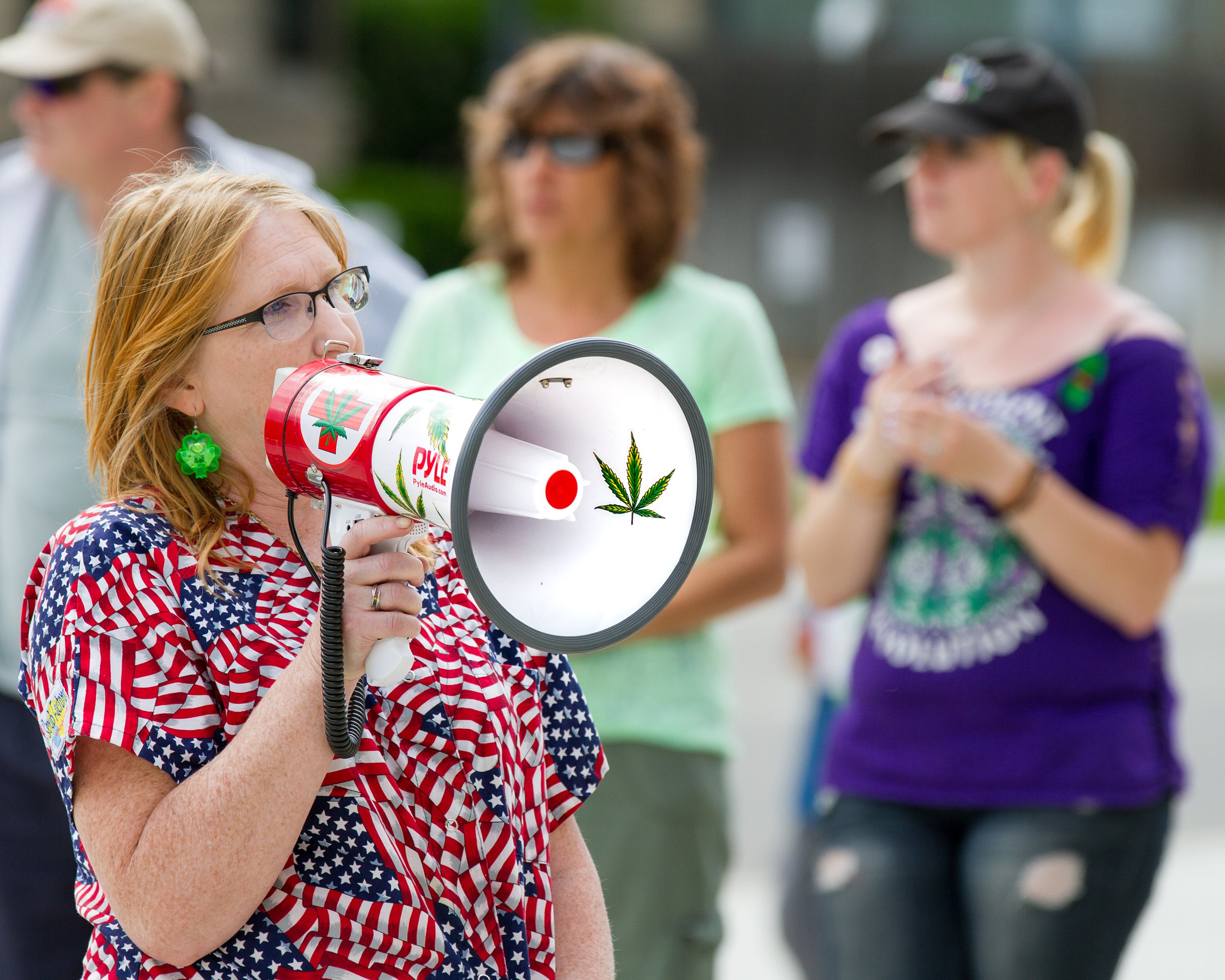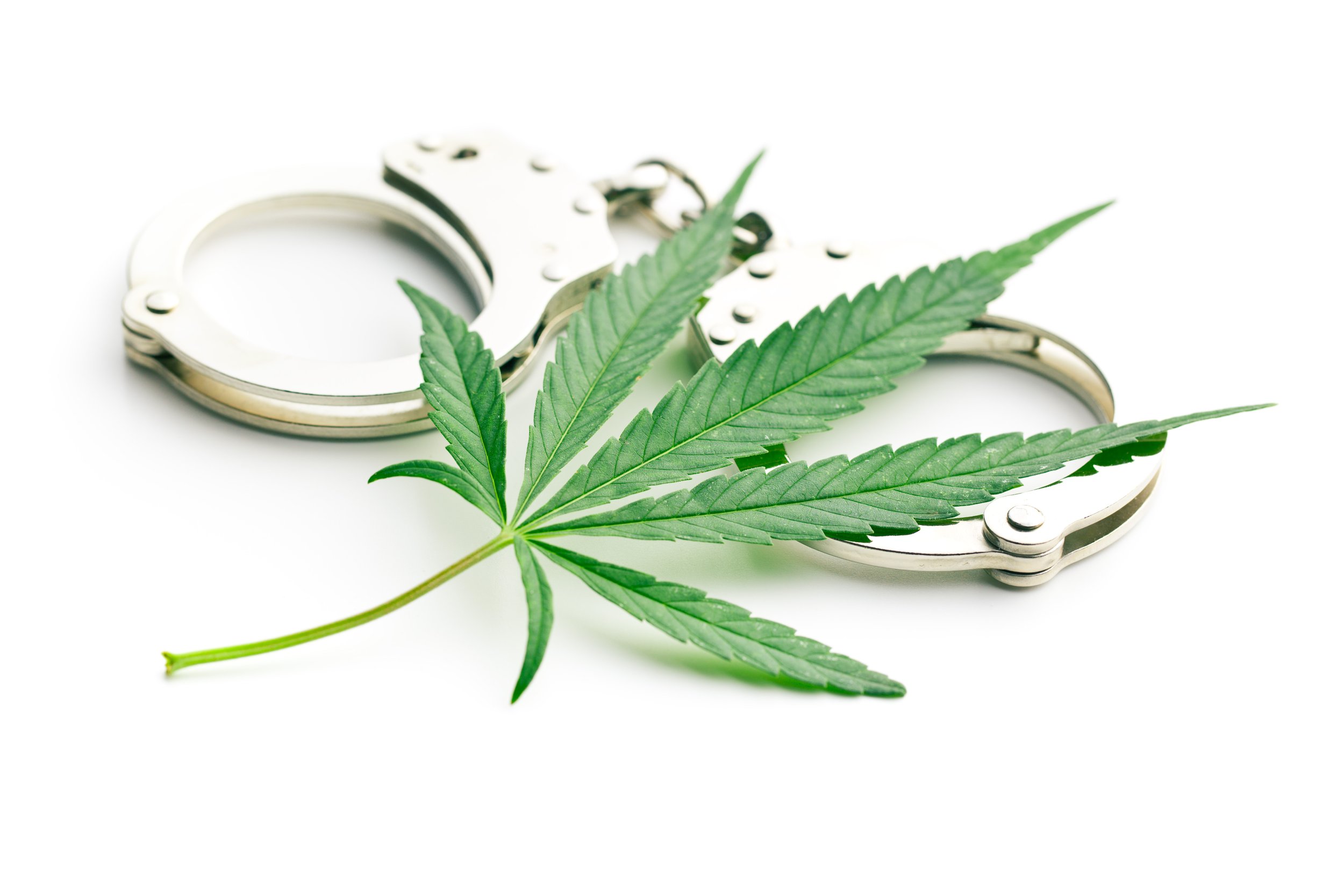What you should know about SQ 820 and Oklahoma’s legalization vote
Oklahoma voters will decide whether or not to legalize marijuana for adults 21 and older in a March 7th special election.
In less than two weeks Oklahomans will cast their ballots on the first ever standalone legalization vote. State Question 820, a citizen-led initiative petition would legalize marijuana for adults over 21 and provide expungement pathways to people with certain criminal cannabis records.
The stakes are high. If SQ 820 fails, Oklahoma statutes would prevent another legalization petition from being submitted for three years unless it got the support of 25% of the registered voting populous. The outcome of this election will inform various national reform efforts and how the state legislature approaches the existing medical program in Oklahoma moving forward.
The basic faQs about SQ 820
Oklahoma’s legalization vote takes place on March 7th, 2023. Voters would have had to have been registered by February 10th to participate. State Question 820 legalizes marijuana by statute, which means the law could be changed to address issues as they arise. SQ 788 legalized medical marijuana in the state by statute and has seen various additions and revisions since its passing. Some within the industry see this as a pitfall of the petition, but the flexibility could also be seen as a benefit to Oklahomans who hold different concerns.
The Yes on 820 Campaign is managed by Oklahomans for Sensible Marijuana Laws. An Economic Impact and Tax Analysis of SQ 820 showed that if passed, recreational and medical marijuana sales will generate more than $821 million in tax revenue within the first five years of its implementation, including more than $434 million in new tax revenue on recreational sales.
-
State Question 820 would statutorily legalize cannabis for adults 21 and older.
Adult-use cannabis sales would be taxed at 15%.
SQ 820 also provides expungement pathways for people with past legal entanglements from decades of over-criminalization in the state. -
Adults 21 and older would be able to possess, transport and distribute:
-1 ounce of flower (28.35 grams)
-8 grams of concentrate
-8 grams of concentrate in infused product -
Yes.
Legal adults could posses up to six mature marijuana plants and up to six seedlings.Up to 12 mature plants and 12 seedlings could be kept on the grounds of a single residence.
-
Tax revenue will first fund the Oklahoma Medical Marijuana Authority’s implementation of the initiative.
Remaining and additional tax revenue is appropriated as follows:
-30% to the state general fund;-30% to grants for public school programs to support student retention and performance, after-school and enrichment programs, and substance abuse prevention programs;
-20% to grants for government agencies and not-for-profit organizations to fund drug addiction treatment and overdose prevention programs;
-10% to the state judicial revolving fund; and
-10% to the municipalities or counties where the marijuana was sold.
-
SQ 820 would require businesses to submit an application for an adult-use license. For the first two years, the application opportunity would only be provided to existing commercial medical marijuana licensees that have had held their license for at least one year.
The cost of an adult-use business license will be $2,500.
-
No. SQ 820 and its regulatory framework is entirely separate from SQ 788.
Medical marijuana excise tax will remain 7%.
more on retroactive application
“A second offense of possessing any amount of cannabis was a felony less than five years ago. Even since the passage of State Question 788, the National Incident-Based Reporting System data shows there have been 14,847 arrests related to cannabis in Oklahoma – 86 percent of which were for possession…”
“Former convictions that would not be illegal under current laws would be eligible for expungement, resentencing or dismissal. The court would be ordered to process requests without prejudice or delay, without hearings or hassle and all outstanding fines and fees associated with the conviction would also be waived. The retroactive application provision transforms felonies into civil infractions and that alone transforms peoples’ lives, returning to people their dignity.”
-Mason Pain
OKlahoma Gazette - To Legalize or not to Legalize: That is SQ 820
concerns & considerations
Oklahoma’s rapid embrace of medical marijuana might not benefit SQ 820’s chances of passing as many may think. Opponents of SQ 820 cite concerns directly related to the medical marijuana market—ranging from OMMA’s regulatory backlog to preserving mom and pop market dynamics and true medical access.
-
There is a repeated concern that adult-use legalization will cause medical patients to not renew their cards, which will cause a cascade of negative reaction from rising medical prices to medical shops closing.
Another consideration: Medical patients will receive a tax benefit to remain in the program. Saving 8% in excise tax per purchase, a medical patient could pay for their bi-annual medical card with tax savings in just 6.25 visits to the dispensary with an average spend of $200.
A split licensing system could even allow a true medical market to emerge for the state’s patients. -
There is another concern OMMA’s regulatory backlog is too large and the need to address it too immediate to introduce an additional adult-use program.
Another consideration: OMMA has something now that they didn’t have when SQ 788 passed: Experience. SQ 820 would add to OMMA’s resources and ability to finance and expand their regulatory efforts more expeditiously.
Additionally, the two year wait time for new applicants will assist OMMA in getting situated with already in-compliance players. -
There is an idea that more cannabis grown and produced equals more that will end up on the black market—which Oklahoma is already a leading supplier of nationally.
Another consideration: The black market can really only exist as long as prohibition. The more states that choose to legalize cannabis, the more the black market is diminished. In Oklahoma, legal access would be expanded to every adult whether they had a medical card or not, which would immediately reduce in-state illicit activity. -
Many cannabis opponents cite an increase in teen cannabis use in other legal states as a reason to halt further legalization efforts in Oklahoma.
Another consideration: According to a recently released biennial report from The Centers for Disease Control and Prevention’s (CDC) Youth Risk Behavior Survey (YRBS), teen cannabis use is at an all time low since 2011.
As reported by Marijuana Moment, “the declines in cannabis consumption by young people come as a growing number of states are legalizing it for adults—contrary to fears long expressed by opponents of the policy change.” -
Commercial licensees fear SQ 820 will open the flood gates to big corporations, put out mom and pops and lead to a degradation in product quality.
Another consideration: Oklahoma’s market ownership dynamics, supply and demand imbalance and regulatory landscape doesn’t lend itself as well to canna corps as other legal states. This is highlighted by where regulation has extended opportunity to big cannabis (SB 1033), big cannabis has so far not taken advantage.
Considering our ownership dispersement, the two-year hold for new applicants SQ 820 requires and our general market conditions, it is unlikely SQ 820 passing fundamentally changes the factors that are currently keeping big cannabis out. It would however, fundamentally change the opportunities existing small businesses have.
There is a lot to consider leading up to the legalization vote on March 7th. Many of the communicated concerns from opponents of 820, as valid as they may be, are speculative outcomes based upon other states which are difficult to compare to Oklahoma or longstanding societal fears informed by prohibition that we have emergent federal research to calm.
What we can say SQ 820 does for sure is expand access to cannabis; corrects the devastating effects of enforcing some of the most punishing criminal cannabis codes and harshest possession penalties in the country; and adds hundreds of millions of dollars in tax revenue to the state economy. For the sake of cannabis and criminal justice reform progress here and beyond, hopefully these facts are what voters base their decision upon come March, 7th.




